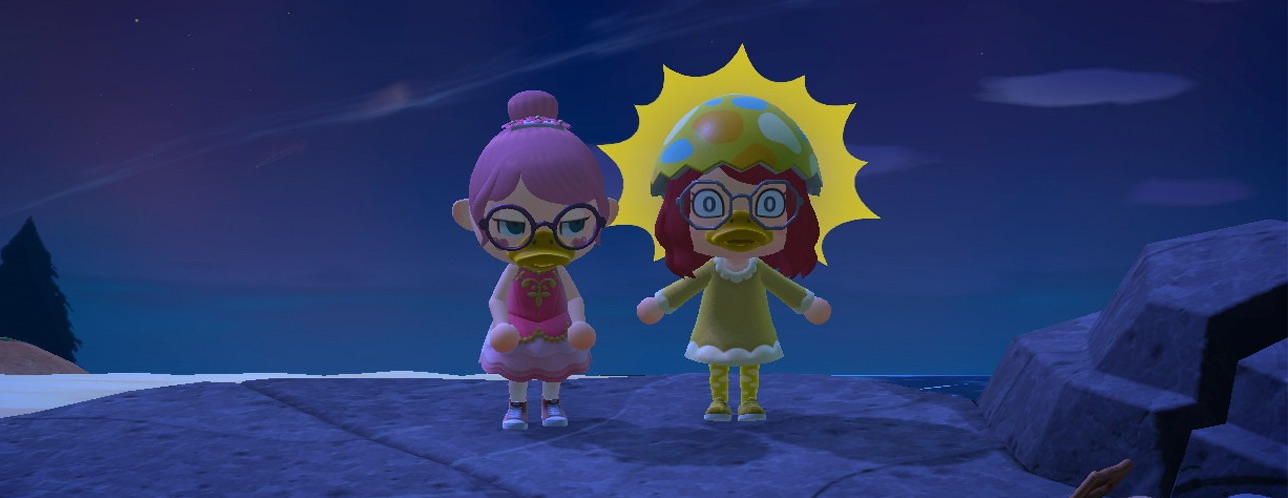If you’ve been playing Animal Crossing: New Horizons, you’ve probably been working at it every day to achieve a 5-star island. Each player has their own preferences on what they imagine their perfect island to be, and this common goal has established an entire industry based on trading in-game items — Facebook groups, Discord threads and even online marketplaces like Nookazon and nook.market have been created by fans to trade clothing, furniture, and most lucrative of all — villagers. But what happens when these seemingly wholesome interactions turn sour?
While the majority of the online Animal Crossing community tends to be very lovely and supportive, there are a few bad eggs around who can ruin the experience for others.

Villager Trading
Some villagers are more rare than others — while official Amiibo Cards can be used for characters that have made previous Animal Crossing appearances, there are some, like Raymond, that are new to New Horizons that the internet is scrambling to get, paying incredible amounts of in-game currency to get him. This strange obsession has resulted in a some not-so-nice, unsolicited messages between players in trade groups.

On Nookazon, an unofficial but aptly named New Horizons trading post, Raymond’s photo alone is being auctioned off for 1,000,000 Bells (the in-game currency). A closer look at recent listings show the villager being sold for incredulous amounts, even for virtual currency.

The high demand for characters like Raymond also means people are willing to go through less “official” methods, like public Facebook groups, which is a risk in itself. There isn’t a system to filter out genuine posters, and no way of real consequences after reporting someone — anyone can make a new profile and rejoin the group. Even with virtual transactions, there’s always a chance of running into untrustworthy posts, but that’s a risk some are willing to take.
Hacked Items

Trading posts are useful for players to get hard-to-find items, and the more rare the item, the more it can sell for. However, how much would you pay for an item that technically doesn’t exist? A new trend of customised trees have been making waves across the New Horizons community, often holding items like star fragments, gold and hearts — none of which actually spawn on trees in-game.
These items are created through hacking the code behind the game — meaning that they’re literally not supposed to be there. While very pretty, a high risk of having these items is the fact that Nintendo auto-updates the game pretty frequently — having a modified code could mean you lose the item in the next update, or it could even corrupt the game as a whole.
Nasty Scammers

There have also been a few seemingly innocent Facebook transactions which have turned ugly. Peter, who preferred not to use his real name, shared one such experience with us. The poster, who was later revealed to be hiding behind a fake profile, had made a post in a now-deactivated group called Animal Crossing: New Horizons *Villager Trade*, claiming to have Raymond available to trade. Peter contacted the poster letting them know that he was interested, but was turned down.
“My baby sister messaged me asking if the post was legit — she saw red flags and immediately asked me to help her. I scouted for her, of course, and was trying to be protective.”
When he later found out that the poster had actually scammed someone else and confronted them, he became the target of racist remarks.

“It’s rough and shocking…I couldn’t imagine somebody telling her that. The feeling is very disheartening, despite it only being a game. It’s so repulsive how racist people can still be, especially to people of colour. I’m shocked and in disbelief that someone could say something like that, and had no remorse that he scammed some other girl in the group.”
Another common scam involves players inviting the victims to their islands in order to make a trade, but kicking them off once payment is made, without actually giving them the promised item. You’re not necessarily safe as a seller either — if the scammer visits your island, a common tactic is for them to leave through the airport as soon as they’ve picked up the item. If this happens to you, immediately hit the power button on your Switch. This disconnects the scammer from their game and doesn’t let them keep what they have in their pockets.
Check out this quick video tutorial for a more detailed explanation.
https://youtu.be/10oeuyce9pA?t=77
What Should Players Look Out For?
Trading
Always be cautious, especially when trading through public Facebook groups. Always ask the seller for proof of an item, especially when it’s a villager. You can also try trading within groups that don’t approve posts with payment requirements, like this Free Villager Trading Group. You could also use fan-made sites like Nookazon which has a Safe Trading Guide, along with the option to report any suspicious users.
Hacked Items
Keep in mind that any hacked items you gain can disappear once the game is updated. There is the option to turn off auto-update, but that also means you won’t get any additional game features, including seasonal events.
For parents
If your child might be making Animal Crossing-related transactions on the internet, it would be wise to monitor any interactions, and keep an eye out for red flags that your child may not necessarily be aware of.











You must be logged in to post a comment.